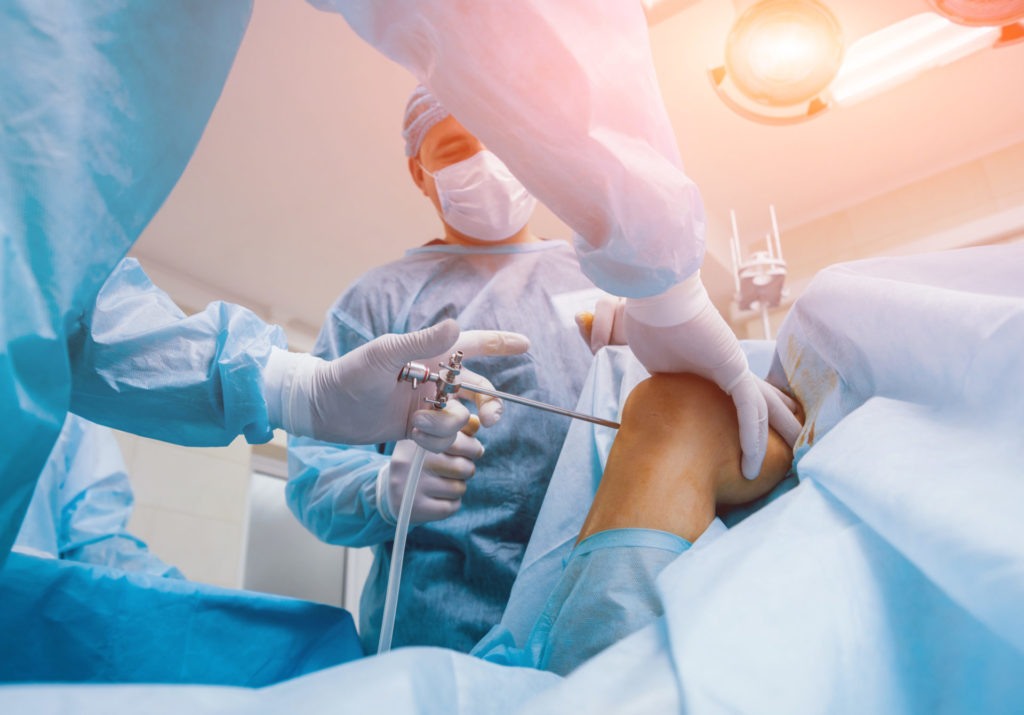What is arthroscopy?
Arthroscopy is a type of keyhole surgery used to diagnose and treat joint problems, including the knee.

Ready to book now? Get in touch to discuss your needs and decide on the best course of treatment for you.
Ready to book now? Get in touch to discuss your needs and decide on the best course of treatment for you.
Preparing for a knee arthroscopy
Before your procedure, your consultant will undertake pre-operative assessment to make sure you’re ready for surgery. You will also receive information on what to eat and drink on the day of the surgery, medicines management, recovery and rehabilitation.
What happens during a knee arthroscopy?
During the procedure, the orthopaedic surgeon will use specialist equipment that makes a very small cut (also known as an incision) in the skin next to the knee joint. An arthroscope (a thin tube with a light and a camera on the end) is passed through the incision to examine the joint condition and understand what may be causing the symptoms. The surgeon may decide to undertake some additional surgical work to repair the knee where possible, or recommend a follow up procedure if a more complicated method is required. The benefits of this type of surgery mean that patients should experience less pain after the procedure, a reduced risk of infection and a faster healing time. The majority of patients will be able to go home the same day, and resume everyday activities more quickly.
Recovering from an arthroscopy
Your recovery time will vary depending on the nature of your arthroscopy procedure. Most people who work in a desk-based job may feel able to return to work after a week, however for more physical employment you may need up to two weeks of rest.
Your consultant may request that you do not undertake physically demanding activities (including sport) for several months in order to give your knee time to heal.
Complications and risks
An arthroscopy is considered a very safe procedure, but like all surgery there is a risk of complications.
You may experience short-term symptoms such as bruising and swelling, and also stiffness and discomfort. These normally improve fairly quickly over the days after the procedure.
Serious complications are far less common, and less than 1 in 100 people will experience issues such as:
- A blood clot in a limb, also known as deep vein thrombosis
- Infection within the joint, also known as septic arthritis
- Bleeding inside the joint
- Accidental nerve damage
Your orthopaedic surgeon will take the time to discuss these risks with you prior to the surgery, and there will be the opportunity to ask further questions if needed.

